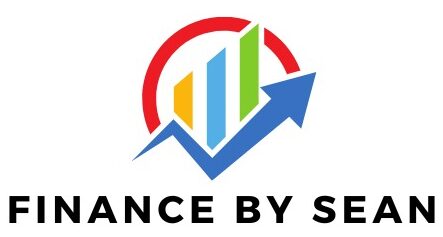Let’s face it—saving money often feels like trying to diet while living next to a bakery. Sure, you know you should do it, but the temptations are everywhere. And let’s not even talk about those “money-saving” hacks that require spending hours cutting coupons to save a whopping $5. That’s not the kind of smart saving we’re talking about today!
This guide is all about saving money fast without sacrificing too much time, energy, or sanity. Whether you’re looking to trim unnecessary expenses or make smarter financial decisions, these tips will help you keep more cash in your pocket without feeling like you’re living on a financial treadmill.
Table of Contents
- Automate Your Savings with Technology
- Pay Off Bad Debt
- Stop Paying for Useless Subscriptions
- Make Planned Expenses
- Negotiate or Refinance Debt
- Buy Things in Bulk
- Bundle Your Insurance
- Quit Bad Vices
Automate Your Savings with Technology
We live in a time where technology can do the hard work for us—so why not let it? Setting up an automatic transfer from your checking to your savings account takes the effort (and temptation) out of saving. Services like Ally Bank make this seamless, so you can build your savings without even thinking about it.
Why This Works:
Removes the temptation to spend money before saving
Helps you build savings effortlessly over time
Creates a financial safety net for emergencies
Pay Off Bad Deb
If your credit card or personal loan has an interest rate north of 10%, paying it off is one of the smartest financial moves you can make. Think about it: the stock market averages around 6-9% returns, but your debt is costing you 10% or more. Paying it down is like earning a guaranteed return—tax-free!
Actionable Steps:
Focus on high-interest debt first (credit cards, personal loans)
Consider debt consolidation if it lowers your interest rate
Use the avalanche method (paying off high-interest debt first) or the snowball method (starting with smaller debts for psychological wins)
Stop Paying for Useless Subscriptions
Streaming services, gym memberships you never use, and other recurring charges might seem small, but they add up quickly. That $20/month subscription? That’s $240 per year gone!
What to Do:
Audit your subscriptions and cancel the ones you rarely use, try this app (Rocket Money) it’ll make your life so much easier, not to mention you can try budgeting from there.
Use a subscription management app to track recurring expenses Negotiate lower rates or switch to cheaper alternatives
Make Planned Expenses
Impulse buying is the enemy of savings. Walking into a store without a budget is like walking into a buffet on an empty stomach—you’re bound to overindulge.
How to Stay on Track:
Set a monthly spending plan (a.k.a. budget)
Use budgeting apps to track expenses
Create a 24-hour rule: If it’s not a necessity, wait a day before purchasing
Negotiate or Refinance Debt
One of the easiest ways to free up money in your budget is to refinance your loans or negotiate lower interest rates. Even a 1% lower interest rate on a mortgage can save you thousands per year.
Where to Start:
Check out refinance options on platforms like NerdWallet
Call your credit card provider and ask for a lower rate
Improve your credit score to qualify for better loan terms
Buy Things in Bulk
Buying in bulk can lead to serious savings, but only for the right items. Stock up on non-perishable essentials like toilet paper, canned goods, and frozen foods, but don’t go overboard (12 bottles of ketchup? Maybe not!).
Smart Bulk Buying Tips:
Stick to items you regularly use
Compare per-unit pricing to ensure real savings
Shop at warehouse clubs like Costco for discounts
Bundle Your Insurance
Insurance companies love selling more than one policy at a time, and bundling your home, car, and life insurance can often net you major discounts.
How to Save:
Check with your current provider to see bundling discounts
Compare multiple insurance quotes using tools like Policygenius
Make sure the bundled price is actually cheaper than separate policies
Quit Bad Vices
Smoking, gambling, excessive shopping, and other vices not only drain your wallet but also take a toll on your health and well-being. Kicking these habits can save thousands per year while improving your overall quality of life.
Steps to Cut Bad Habits:
Identify your biggest money-draining vice
Replace the habit with a healthier (and cheaper) alternative
Seek professional help if needed—investing in yourself pays off
Conclusion
Saving money doesn’t have to mean sacrificing everything you love. By automating savings, cutting unnecessary expenses, and making smarter financial choices, you can keep more money in your pocket without feeling deprived. The key is to start small, stay consistent, and make adjustments along the way.
Now, I’d love to hear from you: Which of these money-saving tips are the easiest or hardest for you to follow?
Drop a comment below and check out more personal finance tips at FinanceBySean.com!






